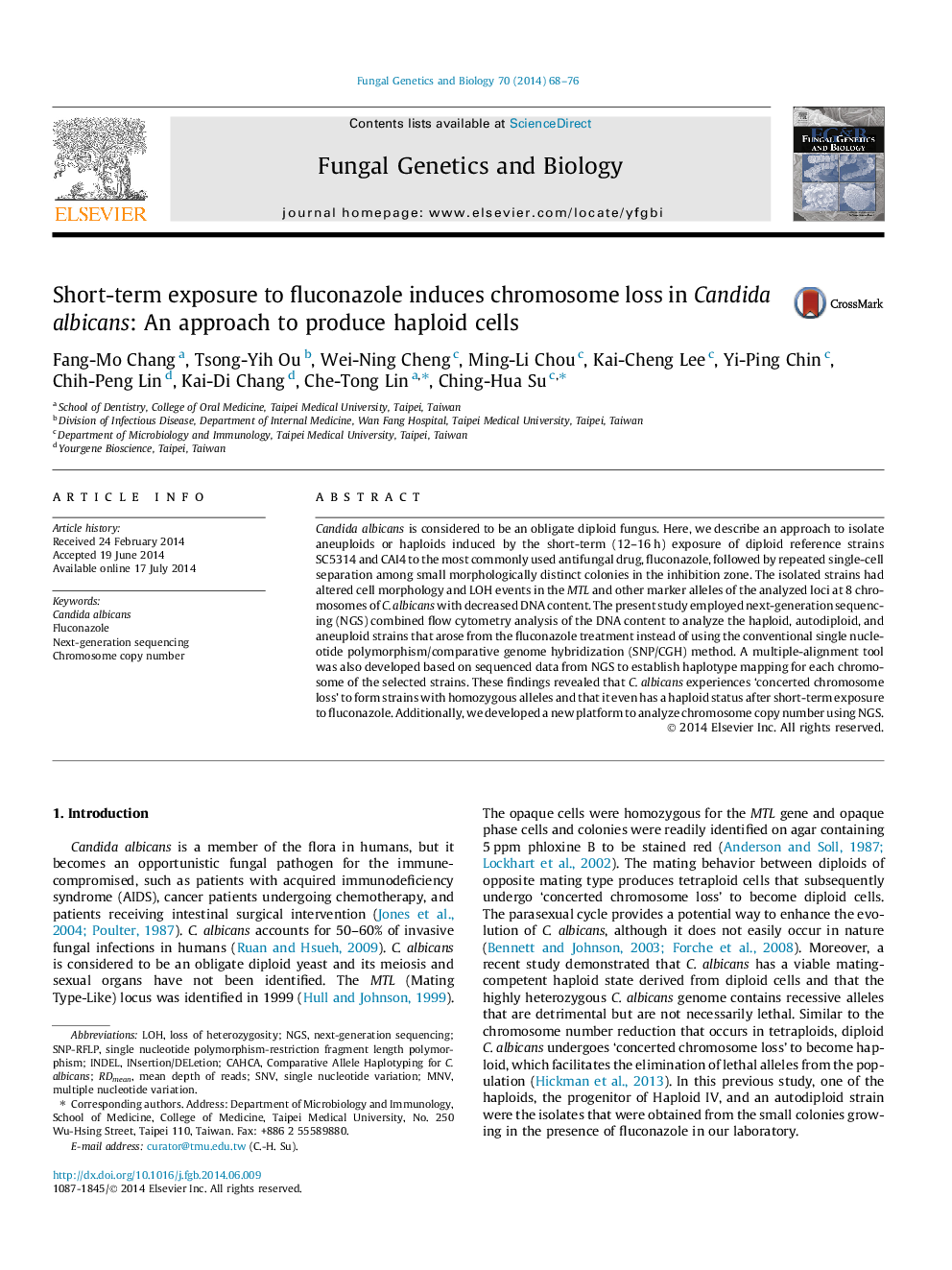| کد مقاله | کد نشریه | سال انتشار | مقاله انگلیسی | نسخه تمام متن |
|---|---|---|---|---|
| 8470850 | 1550021 | 2014 | 9 صفحه PDF | دانلود رایگان |
عنوان انگلیسی مقاله ISI
Short-term exposure to fluconazole induces chromosome loss in Candida albicans: An approach to produce haploid cells
ترجمه فارسی عنوان
قرار گرفتن در معرض کوتاه مدت فلوکونازول موجب از دست دادن کروموزوم در کاندیدا آلبیکنس می شود: روشی برای تولید سلول های هپلوئید
دانلود مقاله + سفارش ترجمه
دانلود مقاله ISI انگلیسی
رایگان برای ایرانیان
کلمات کلیدی
موضوعات مرتبط
علوم زیستی و بیوفناوری
بیوشیمی، ژنتیک و زیست شناسی مولکولی
بیولوژی سلول
چکیده انگلیسی
Candida albicans is considered to be an obligate diploid fungus. Here, we describe an approach to isolate aneuploids or haploids induced by the short-term (12-16Â h) exposure of diploid reference strains SC5314 and CAI4 to the most commonly used antifungal drug, fluconazole, followed by repeated single-cell separation among small morphologically distinct colonies in the inhibition zone. The isolated strains had altered cell morphology and LOH events in the MTL and other marker alleles of the analyzed loci at 8 chromosomes of C. albicans with decreased DNA content. The present study employed next-generation sequencing (NGS) combined flow cytometry analysis of the DNA content to analyze the haploid, autodiploid, and aneuploid strains that arose from the fluconazole treatment instead of using the conventional single nucleotide polymorphism/comparative genome hybridization (SNP/CGH) method. A multiple-alignment tool was also developed based on sequenced data from NGS to establish haplotype mapping for each chromosome of the selected strains. These findings revealed that C. albicans experiences 'concerted chromosome loss' to form strains with homozygous alleles and that it even has a haploid status after short-term exposure to fluconazole. Additionally, we developed a new platform to analyze chromosome copy number using NGS.
ناشر
Database: Elsevier - ScienceDirect (ساینس دایرکت)
Journal: Fungal Genetics and Biology - Volume 70, September 2014, Pages 68-76
Journal: Fungal Genetics and Biology - Volume 70, September 2014, Pages 68-76
نویسندگان
Fang-Mo Chang, Tsong-Yih Ou, Wei-Ning Cheng, Ming-Li Chou, Kai-Cheng Lee, Yi-Ping Chin, Chih-Peng Lin, Kai-Di Chang, Che-Tong Lin, Ching-Hua Su,
